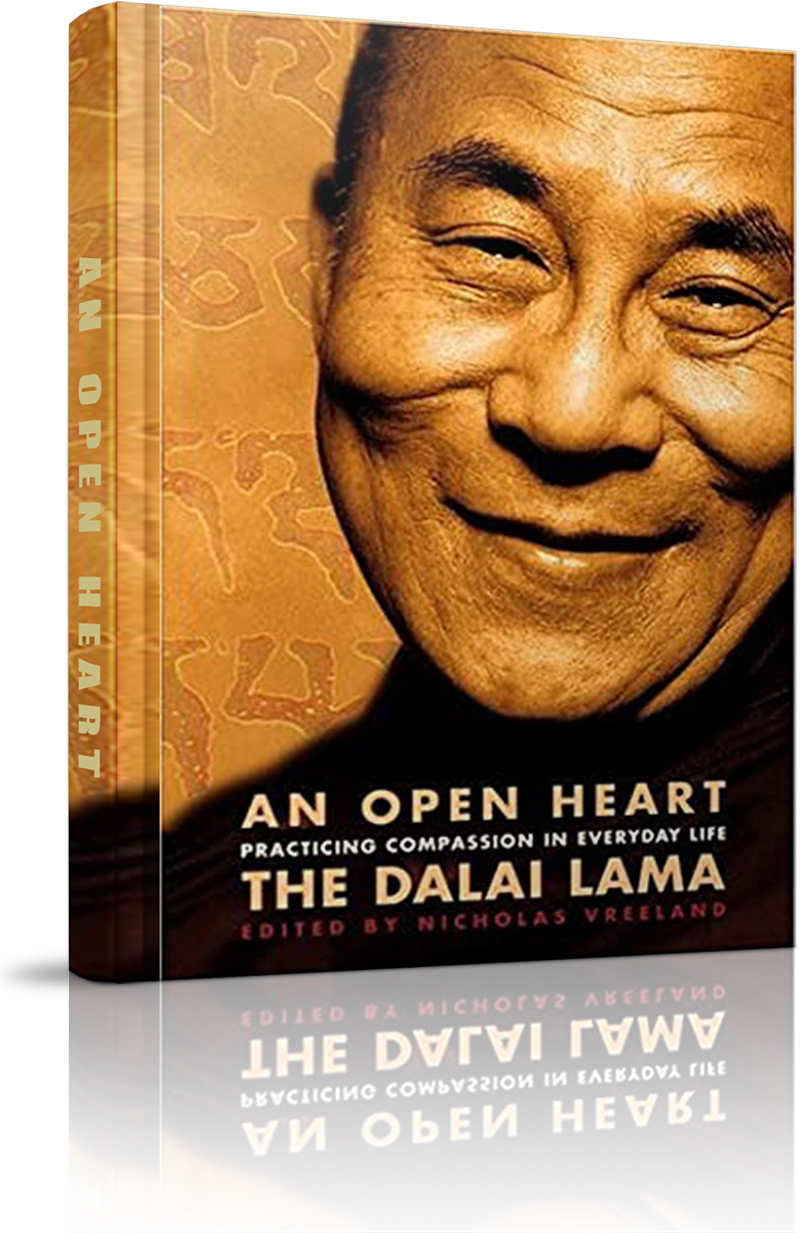Không có ai là vô dụng trong thế giới này khi làm nhẹ bớt đi gánh nặng của người khác. (No one is useless in this world who lightens the burdens of another. )Charles Dickens
Điều bất hạnh nhất đối với một con người không phải là khi không có trong tay tiền bạc, của cải, mà chính là khi cảm thấy mình không có ai để yêu thương.Tủ sách Rộng Mở Tâm Hồn
Ai sống quán bất tịnh, khéo hộ trì các căn, ăn uống có tiết độ, có lòng tin, tinh cần, ma không uy hiếp được, như núi đá, trước gió.Kinh Pháp Cú (Kệ số 8)
Trời không giúp những ai không tự giúp mình. (Heaven never helps the man who will not act. )Sophocles
Đừng cố trở nên một người thành đạt, tốt hơn nên cố gắng trở thành một người có phẩm giá. (Try not to become a man of success, but rather try to become a man of value.)Albert Einstein
Ngu dốt không đáng xấu hổ bằng kẻ không chịu học. (Being ignorant is not so much a shame, as being unwilling to learn.)Benjamin Franklin
Hãy nhớ rằng hạnh phúc nhất không phải là những người có được nhiều hơn, mà chính là những người cho đi nhiều hơn. (Remember that the happiest people are not those getting more, but those giving more.)H. Jackson Brown, Jr.
Chúng ta phải thừa nhận rằng khổ đau của một người hoặc một quốc gia cũng là khổ đau chung của nhân loại; hạnh phúc của một người hay một quốc gia cũng là hạnh phúc của nhân loại.Đức Đạt-lai Lạt-ma XIV
Những khách hàng khó tính nhất là người dạy cho bạn nhiều điều nhất. (Your most unhappy customers are your greatest source of learning.)Bill Gates
Nhẫn nhục có nhiều sức mạnh vì chẳng mang lòng hung dữ, lại thêm được an lành, khỏe mạnh.Kinh Bốn mươi hai chương
Bất lương không phải là tin hay không tin, mà bất lương là khi một người xác nhận rằng họ tin vào một điều mà thực sự họ không hề tin. (Infidelity does not consist in believing, or in disbelieving, it consists in professing to believe what he does not believe.)Thomas Paine
Trang chủ »» Danh mục »» SÁCH ANH NGỮ HOẶC SONG NGỮ ANH-VIỆT »» An Open Heart »» Chapter Two: Meditation - A beginning »»
An Open Heart
»» Chapter Two: Meditation - A beginning
 Xem Mục lục
Xem Mục lục  Vietnamese || Đối chiếu song ngữ
Vietnamese || Đối chiếu song ngữ
- none
- Introduction
- Chapter One: The desire for happiness
- »» Chapter Two: Meditation - A beginning
- Chapter 3: The material and immaterial world
- Chapter 4: Karma
- Chapter 5: The afflictions
- Chapter 6: The vast and the profound: Two aspects of the Path
- Chapter 7: Compassion
- Chapter 8: Meditating on compassion
- Chapter 9: Cultivating equanimity
- Chapter 10: Bodhicitta
- Chapter 11: Calm abiding
- Chapter 12: The nine stages of calm abiding meditation
- Chapter 13: Wisdom
- Chapter 14: Buddhahood
- Chapter 15: Generating Bodhicitta
- Afterword (Khyongla Rato and Richard Gere)
- none

Although we all naturally aspire to be happy and wish to overcome our misery, we continue to experience pain and suffering. Why is this? Buddhism teaches that we actually conspire in the causes and conditions that create our unhappiness, and are often reluctant to engage in activities that could lead to more long-lasting happiness. How can this be? In our normal way of life, we let ourselves be controlled by powerful thoughts and emotions, which in turn give rise to negative states of mind. It is by this vicious circle that we perpetuate not only our unhappiness but also that of others. We must deliberately take a stand to reverse these tendencies and replace them with new habits. Like a freshly grafted branch on an old tree that will eventually absorb the life of that tree and create a new one, we must nurture new inclinations by deliberately cultivating virtuous practices. This is the true meaning and object of the practice of meditation.
Contemplating the painful nature of life, considering the methods by which our misery can be brought to an end, is a form of meditation. This book is a form of meditation. The process by which we transform our more instinctual attitude to life, that state of mind which seeks only to satisfy desire and avoid discomforts, is what we mean when we use the word meditation. We tend to be controlled by our mind, following it along its self-centered path. Meditation is the process whereby we gain control over the mind and guide it in a more virtuous direction. Meditation may be thought of as a technique by which we diminish the force of old thought habits and develop new ones. We thereby protect ourselves from engaging in actions of mind, word, or deed that lead to our suffering. Such meditation is to be used extensively in our spiritual practice.
This technique is not in and of itself Buddhist. Just as musicians train their hands, athletes their reflexes and techniques, linguists their ear, scholars their perceptions, so we direct our minds and hearts.
Familiarizing ourselves with the different aspects of our spiritual practice is therefore a form of meditation. Simply reading about them once is not of much benefit. If you are interested, it is helpful to contemplate the subjects mentioned, as we did in the previous chapter with the nonvirtuous action of senseless talk, and then research them more extensively to broaden your understanding. The more you explore a topic and subject it to mental scrutiny, the more profoundly you understand it. This enables you to judge its validity. If through your analysis you prove something to be invalid, then put it aside. However, if you independently establish something to be true, then your faith in that truth has powerful solidity. This whole process of research and scrutiny should be thought of as one form of meditation.
The Buddha himself said, “O monks and wise ones, do not accept my words simply out of reverence. You should subject them to critical analysis and accept them on the basis of your own understanding.” This remarkable statement has many implications. It is clear that the Buddha is telling us that when we read a text, we should rely not merely on the fame of the author but rather on the content. And when grappling with the content, we should rely on the subject matter and the meaning rather than on the literary style. When relating to the subject matter, we should rely on our empirical understanding rather than on our intellectual grasp.
In other words, we must ultimately develop more than mere academic knowledge of the Dharma. We must integrate the truths of the Buddha’s teaching into the depths of our very being, so that they become reflected in our lives. Compassion is of little value if it remains an idea. It must become our attitude toward others, reflected in all our thoughts and actions. And the mere concept of humility does not diminish our arrogance; it must become our actual state of being.
FAMILIARITY WITH A CHOSEN OBJECT
The Tibetan word for meditation is gom, which means “to familiarize.” When we use meditation on our spiritual path, it is to familiarize ourselves with a chosen object. This object need not be a physical thing such as an image of the Buddha or Jesus on the cross. The “chosen object” can be a mental quality such as patience, which we work at cultivating within ourselves by means of meditative contemplation. It can also be the rhythmic movement of our breath, which we focus on to still our restless minds. And it can be the mere quality of clarity and knowing - our consciousness - the nature of which we seek to understand. All these techniques are described in depth in the pages that follow. By these means our knowledge of our chosen object grows.
For example, as we research what kind of car to buy, reading the pros and cons of different makes, we develop a sense of the qualities of a particular choice. By contemplating these qualities, our appreciation of this car intensifies, as does our desire to possess it. We can cultivate virtues such as patience and tolerance in much the same way. We do so by contemplating the qualities that constitute patience, the peace of mind it generates in us, the harmonious environment created as a result of it, the respect it engenders in others. We also work to recognize the drawbacks of impatience, the anger and lack of contentment we suffer within, the fear and hostility it brings about in those around us. By diligently following such lines of thought, our patience naturally evolves, growing stronger and stronger, day by day, month by month, and year by year. The process of taming the mind is a lengthy one. Yet once we have mastered patience, the pleasure derived from it outlasts that provided by any car.
We actually engage in such meditation quite often in our daily lives. We are particularly good at cultivating familiarity with unvirtuous tendencies! When displeased with someone, we are able to contemplate that person’s faults and derive a stronger and stronger conviction of his or her questionable nature. Our mind remains focused on the “object” of our meditation, and our contempt for the person thereby intensifies. We also contemplate and develop familiarity with chosen objects when we focus on something or someone we are particularly fond of. Very little prodding is needed to maintain our concentration. It is more difficult to remain focused when cultivating virtue. This is a sure indication of how overwhelming the emotions of attachment and desire are!
There are many kinds of meditation. There are some that do not require a formal setting or a particular physical posture. You can meditate while driving or walking, while on a bus or train, and even while taking a shower. If you wish to devote a particular time to more concentrated spiritual practice, it is beneficial to apply early mornings to a formal meditation session, as that is when the mind is most alert and clear. It is helpful to sit in a calm environment with your back straight, as this helps you remain focused. However, it is important to remember that you must cultivate virtuous mental habits whenever and wherever possible. You cannot limit meditation to formal sessions.
ANALYTICAL MEDITATION
As I have said, there are two types of meditation to be used in contemplating and internalizing the subjects I discuss in this book. First, there is analytical meditation. In this form of meditation, familiarity with a chosen object - be it the car you desire or the compassion or patience you seek to generate - is cultivated through the rational process of analysis. Here, you are not merely focusing on a topic. Rather, you are cultivating a sense of closeness or empathy with your chosen object by studiously applying your critical faculties. This is the form of meditation I shall emphasize as we explore the different subjects that need to be cultivated in our spiritual practice. Some of these subjects are specific to a Buddhist practice, some not. However, once you have developed familiarity with a topic by means of such analysis, it is important to then remain focused on it by means of settled meditation in order to help it sink in more profoundly.
SETTLED MEDITATION
The second type is settled meditation. This occurs when we settle our minds on a chosen object without engaging in analysis or thought. When meditating on compassion, for example, we develop empathy for others and work at recognizing the suffering they are experiencing. This we do by means of analytical meditation. However, once we have a feeling of compassion in our hearts, once we find that the meditation has positively changed our attitude toward others, we remain fixed on that feeling, without engaging in thought. This helps deepen our compassion. When we sense that our feeling of compassion is weakening, we can again engage in analytical meditation to revitalize our sympathy and concern before returning to settled meditation.
As we become more adept, we can skillfully switch between the two forms of meditation in order to intensify the desired quality. In Chapter 11, “Calm Abiding,” we shall examine the technique for developing our settled meditation to the point where we can remain focused single-pointedly on our object of meditation for as long as we wish. As I’ve said, this “object of meditation” is not necessarily something we can “see.” In a sense, one fuses his or her mind with the object in order to cultivate familiarity with it. Settled meditation, like other forms of meditation, is not virtuous by nature. Rather, it is the object we are concentrated on and the motivation with which we engage in the practice that determine the spiritual quality of our meditation. If our mind is focused on compassion, the meditation is virtuous. If it is placed on anger, it is not.
We must meditate in a systematic manner, cultivating familiarity with a chosen object gradually. Studying and listening to qualified teachers is an important part of this process. We then contemplate what we have read or heard, scrutinizing it so as to remove any confusion, misconceptions, or doubts we might have. This process itself helps affect the mind. Then, when we focus on our object single-pointedly, our minds become fused with it in the desired manner.
It is important that before we try to meditate on the more subtle aspects of Buddhist philosophy, we are able to keep our minds concentrated on simpler topics. This helps us develop the ability to analyze and remain single-pointedly focused on subtle topics such as the antidote to all our suffering, the emptiness of inherent existence.
Our spiritual journey is a long one. We must choose our path with care, ensuring that it encompasses all those methods that lead us to our goal. At times the journey is steep. We must know how to pace ourselves down to the snail’s pace of profound contemplation while also ensuring that we do not forget our neighbor’s problem or that of the fish swimming in polluted oceans many thousands of miles away.
MUA THỈNH KINH SÁCH PHẬT HỌC
DO NXB LIÊN PHẬT HỘI PHÁT HÀNH
Mua sách qua Amazon sẽ được gửi đến tận nhà - trên toàn nước Mỹ, Canada, Âu châu và Úc châu.
Quý vị đang truy cập từ IP 216.73.216.157 và chưa ghi danh hoặc đăng nhập trên máy tính này. Nếu là thành viên, quý vị chỉ cần đăng nhập một lần duy nhất trên thiết bị truy cập, bằng email và mật khẩu đã chọn.
Chúng tôi khuyến khích việc ghi danh thành viên ,để thuận tiện trong việc chia sẻ thông tin, chia sẻ kinh nghiệm sống giữa các thành viên, đồng thời quý vị cũng sẽ nhận được sự hỗ trợ kỹ thuật từ Ban Quản Trị trong quá trình sử dụng website này.
Việc ghi danh là hoàn toàn miễn phí và tự nguyện.
Ghi danh hoặc đăng nhập
... ...


 Trang chủ
Trang chủ










